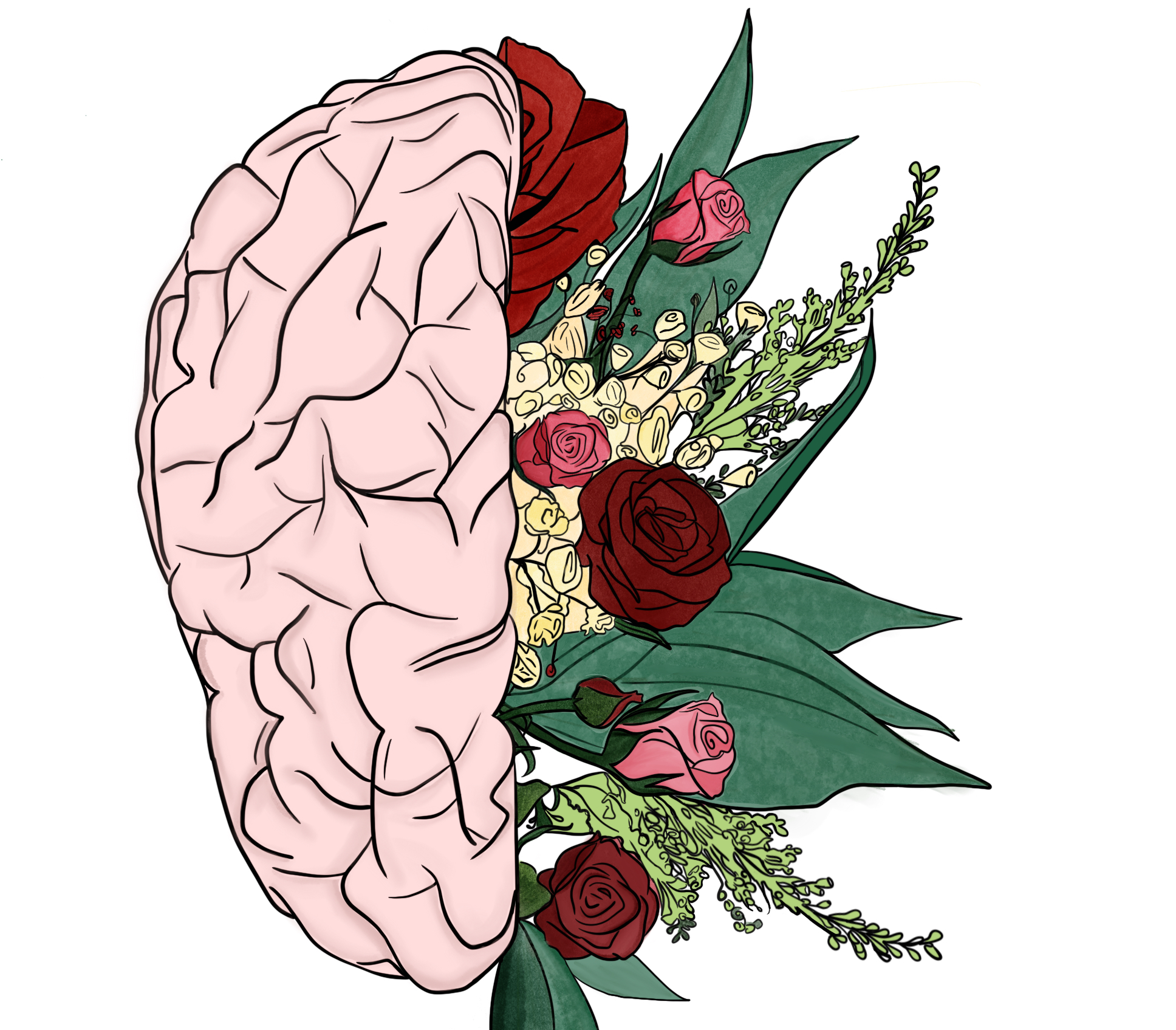Wellness and Mindfulness During Winter
Gallery

The cold months can be difficult, with winter in Michigan potentially lingering until April. Making sure you stay warm and are taking care of yourself is important during these colder months.
Many people suffer from seasonal affective disorder. According to Forbes Health, Michigan residents are ranked number eight for the most states that are affected by the winter blues. About 5 percent of adults in the U.S. suffer from SAD, which usually lasts 40 percent of the year. Women are more likely to suffer from it than men. Even if people are not diagnosed with SAD, the winter months can take a toll on one’s mental health. There are ways to stay healthy and practice self-care.
Hibernating during the winter may seem like a simple route to take and an easy way to put exercise off. Staying active can help reduce some of the stress and improve your mental and physical health. Not only does it help boost your immune system, but it also keeps your body active. The Mayo Clinic recommends at least 150 minutes of moderate aerobic activity a week. This can include walking around the mall or a track, going to the gym, jump rope, or any other cardio activity like dancing or swimming.
It may be hard to want to spend some time outdoors or even leave the house with the warm indoors, but getting sunlight every day helps brighten your mood and gives you a healthy dose of Vitamin D. Go for a walk around campus, your block, down the street to the nearest coffee shop, or at a park, etc. Anything to get your body moving and in the sun.
Drinking water frequently, eating healthy meals, and getting enough sleep are most important during the winter months. Making sure we warm up from the inside is important. Fueling our bodies with warm, nutritious soups and cooked foods instead of fast food can make a difference. Eating healthy and drinking water can help prevent our bodies from getting sick.
Our bodies need rest and enough sleep so our brains can recharge. Prioritizing sleep and having the same sleep routine is important. If you are having trouble sleeping, talk to your primary care doctor and they can help you find a specialist.
It is easy for our thoughts to turn negative and feel gloomy. Taking ten minutes every morning and night to journal can help get your mind feeling more balanced and centered again. Your brain is a mental garden, and it is important that you take care of it. Journaling is just one example, but you can also practice gratitude and affirmations, praying and meditation.
It may seem like you never have any time to do the tasks you planned for but making time for yourself for at least 30 minutes to an hour is important. Spend this time being creative and having fun. There are many different ways to get creative that don’t just involve art supplies. You can always get creative in other ways, such as by coloring books, jewelry making, trying new recipes, scrapbooking, writing, and a list of other things. Your brain can be inspired by anything you see or hear.
It’s almost halfway through the semester, so it’s important to remember to slow down and relax for a bit. It may already be a hectic semester for you and you must remember to always slow down after a long day or week. Taking a warm bubble bath can put your mind at peace, as can reading a good book you enjoy or your favorite movie or show. Unwinding and relaxing can put you in a better mood and a much better mindset.
It is important to stay on top of your daily routine and simple self-care tasks. It may be hard to practice good hygiene when you are burned out, but a quick shower can help lift your mood. If showering seems too overwhelming, even washing your face and brushing your teeth is a great first step. It can also be easy to let your laundry pile up. When you have clean clothes, towels, and sheets, it can help make you feel more productive. Getting behind on laundry can be a hassle, but doing small loads can help, so you don’t get overwhelmed at the end of the week.
What can be worse than a pile of laundry can be dishes. Doing the dishes is something we never want to come home to do and cleaning up after every meal right away is a way to avoid that pile of dishes. Winter can affect us all, and if you or someone you know is struggling during this time, always feel comfortable talking to someone about what is going on. Whether it be a therapist, family member, a physician or anyone else you feel comfortable with.
For resources on campus, Henry Ford College students can contact the counseling office at 313-845-9611.
